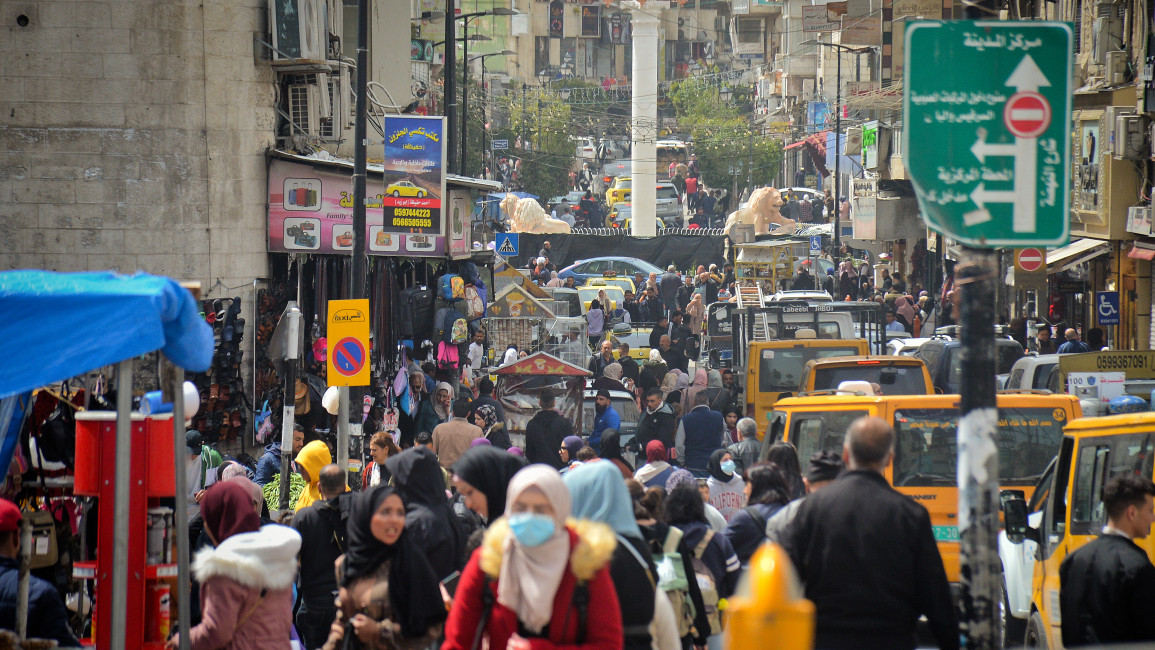'We will pay the price': Palestinians react to Israel's judicial overhaul crisis
Palestinians "will pay the price" of the Israeli judicial reforms crisis, reactions from across the occupied West Bank agreed in responses to The New Arab on Tuesday, 25 July.
On Monday night, 24 July, protests intensified in occupied Jerusalem and Israel after the Knesset passed the judicial reforms bill following hours of deliberation.
Israeli protesters blocked main roads in Tel Aviv and Jerusalem, while hundreds surrounded the government and the supreme court buildings.
"I don't believe in the idea of Israelis mobilising to defend democracy. What democracy?" Nader Hanna, a charity worker from Bethlehem, told The New Arab.
"Israeli democracy is a democracy for Jews only, where the almost five million Palestinians in the West Bank and the Gaza Strip live under Israeli martial law of the prolonged Israeli military occupation, while settlers who squat illegally on our lands have civil liberties", he said.
TONIGHT: As police suppress a pro-democracy protest in Tel Aviv, a protester tells journalists his son is a soldier serving in Huwara (occupied West Bank) — where Israel’s army was filmed protecting settlers during a pogrom against the town’s Palestinian residents in February. pic.twitter.com/5mwrKtWxS3
— +972 Magazine (@972mag) July 20, 2023
"Under this democracy, the million and a half Palestinians citizens of Israel are second-class citizens, with dozens of their villages unrecognised and subject to demolitions and discrimination; what democracy are Israelis defending then?" stressed Hanna.
"The most bogus reaction so far has been the 1142 Israeli air force reservists who stopped showing up for duty in protest against the judicial reform, as if bombing civilians and children in Gaza is fine with their moral compass, but not the judicial reform", he underlined.
In July and June, Israeli air forces used drone and helicopter strikes in the West Bank for the first time in twenty years during raids on the Jenin refugee camp.
"I don't know where these democracy protesters were when missiles and bombs were dropped on our homes", Najat Abu Butmeh, director of the women's centre in Jenin, told TNA.
"One thing we have clear, throughout the years of occupation, is that no matter the differences between Israeli political caps, they all agree on continuing to occupy and brutalise us", she noted.
"When I was younger, I used to believe that the change in Israeli politics might bring about some change for us, at least reduce the occupation's violence against us", she remarked. "On the contrary, it is always us, Palestinians, who pay the price of these differences", she stressed.
https://t.co/QEmw7CeWdi pic.twitter.com/Pwap0GIsCh
— Mohammad Alsaafin (@malsaafin) July 22, 2023
On the other hand, Jamal Jumaa, coordinator of the grassroots Palestinian campaign against the Israeli wall and settlements - 'Stop The Wall', considered that "the judicial reforms will make the de-facto confiscation of Palestinian lands in the West Bank".
"Freeing the government actions from the supreme court's rulings gives the Israeli government a shortcut to annex the West Bank without officially declaring it", said Jumaa.
"This will reflect mostly in the West Bank's area 'c', like Masafer Yatta and the Jordan Valley, and it will most probably be accompanied by an unprecedented spike in settlement expansion", he pointed out.
However, according to Jumaa, "the annexation plan has been on the table before this current government, and the settlement agenda has been going on since previous governments, so the judicial reform will not bring a shift in Israeli policy, but it will only facilitate the ongoing policy", he added.
A car drove through pro-democracy protesters in Israel, injuring 3 people. Remember India’s farmer protest and the son of Modi’s minister driving his Jeep over protesting farmers! Modi and Netanyahu’s supporters have a lot in common. pic.twitter.com/BEC5w9JRny
— Ashok Swain (@ashoswai) July 24, 2023
Before the controversial judicial reform crisis started, In May of last year, the Israeli Supreme Court ruled in favour of Israel's plans to expel some 1000 Palestinians from their homes in Masafer Yatta after a 22-year-long legal battle.
The court also ruled in 2018, in a unanimous vote by a three-judge panel, in favour of Israel's use of lethal force against Palestinian peaceful demonstrators in Gaza, during the 'Great March of Return' events. Some 223 unarmed Palestinian protesters were killed during the protests, 61 on Nakba day of 2018 alone.



